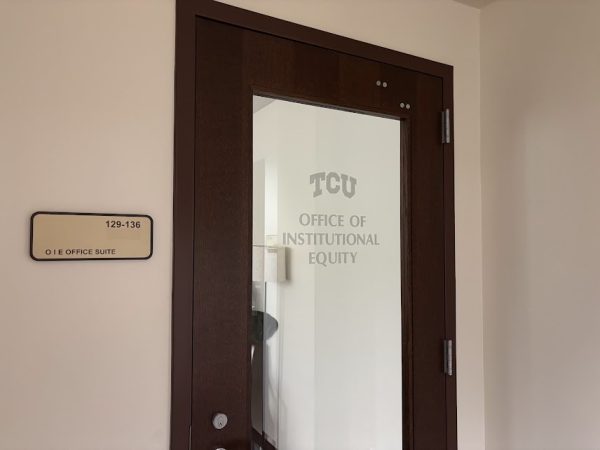A former student is suing TCU for $100 million claiming it was too lenient on a student who sexually assaulted her, but the university issued a statement late Thursday refuting her claims.
“We do not ordinarily comment on student conduct cases,” Greg Staley, associate vice chancellor of communications, wrote in a statement. “But in this case, a former student has filed a lawsuit demanding $100 million, and her lawyer has launched a media campaign making false claims about our university and its leadership, our students, our history of enforcing our community standards and the student conduct process.”
The suit was filed Wednesday in federal court in Virginia where the young woman identified as “Emily Doe,” lives. An unidentified male student raped Doe on Oct. 26, 2024, while she was sleeping in her dorm room. The student who assaulted her lived in the same residence hall.
In addition to the settlement, Doe is seeking reimbursement of her legal expenses and a “permanent injunction requiring TCU to comply with Title IX, to treat cases of alleged rape seriously, to acknowledge explicitly that nonconsensual sex is rape, to interview the complainant’s witnesses within two weeks of filing of the complaint, to expel or suspend for at least one year any student found guilty of rape, and to note it permanently on a student’s transcript if he is found guilty of rape.”

After an all-day hearing via Zoom on Feb. 20, 2025, a panel made up of three TCU employees agreed unanimously that the unnamed male student had raped Doe, according to the suit.
His punishment, according to the suit, was to write a three-to-four-page paper on the importance of mutual consent, have a private discussion with a TCU faculty member and re-watch the university’s orientation videos on consent.
Doe appealed that decision, arguing it wasn’t commensurate with the offense. She submitted an appeal request form for her belief of a disproportionate outcome imposed by the panel members of the hearing, stating, “anything less than a suspension is an insult to everyone.”
Doe’s lawyers from the O’Hagan Meyer firm argue that TCU’s response to on-campus sexual assault is a systemic issue that constitutes discrimination.
“Rather than protect female students from being raped, TCU adopted a policy to protect male students who rape,” the suit reads.
TCU denied Doe’s version of how it treated the assailant.
“The complaint omits a key fact: TCU held the accused student accountable and suspended him,” Staley wrote in the statement. “He is no longer enrolled at TCU. We take sexual assault claims seriously, and to spread false allegations and purposefully distort data is irresponsible and a dangerous mischaracterization of our students and our institution. In any event, we will not accede to her lawyer’s repeated threats of an orchestrated media attack if we do not pay tens of millions of dollars.”
The lawsuit argued that TCU fails to act in rape cases. It cited data from a fall 2024 report from the Office of Institutional Equity that included 64 reports of rape. Only three were formally investigated, and none led to disciplinary action, according to the report.
Staley said the suit misinterpreted the facts.
“The lawsuit’s characterization of the publicly reported data is distorted,” Staley said. “The vast majority of these reports are ‘confidential reports,’ which do not include facts nor contact information, so they cannot lead to disciplinary action. The data likely include multiple reports of a single incident, and many factors influence whether a report leads to a formal investigation, primarily the wishes of the victim.”
Title IX is a federal law that prohibits sex-based discrimination in education. Universities are required to investigate and address reports of sexual assault.










